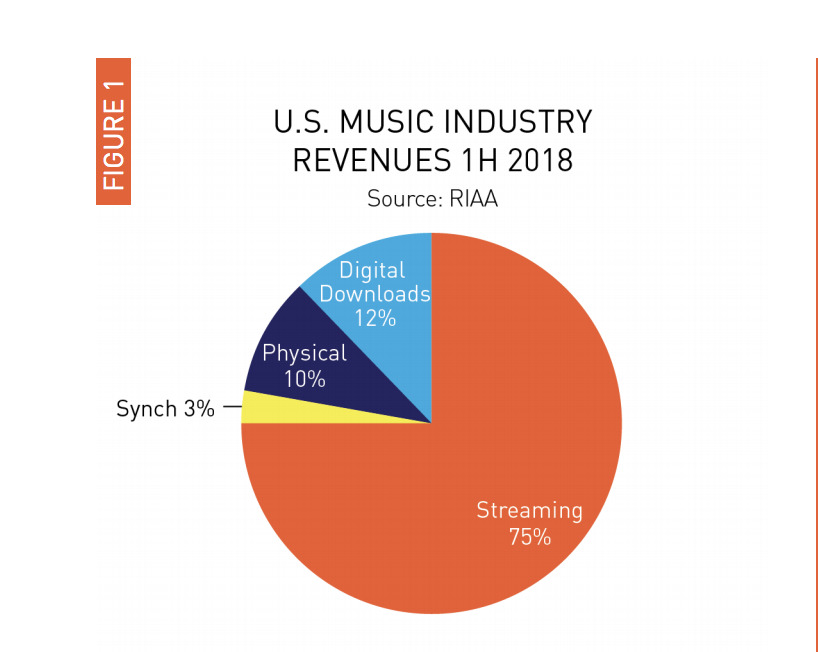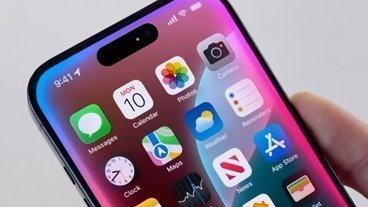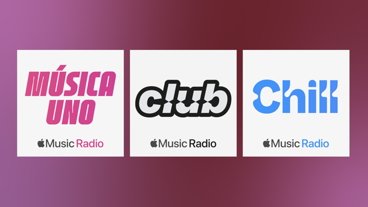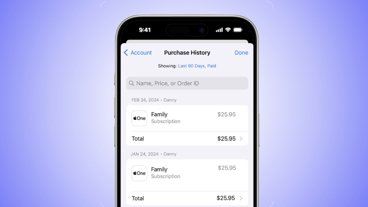Apple Music and other paid subscriptions are now the biggest source of revenue in a growing music industry, with streaming alone encompassing 75 percent of money earned, far beyond any other contributor.
According to the 2018 Mid-Year Music Revenues Report, released this week by Recording Industry Association of America (RIAA), the U.S. music industry saw an increase in overall revenues. Those revenues rose to $4.6 billion in the first half of the year, up from $4.2 billion the same time in 2017.
Three-quarters of the industry's revenues in the first half of 2018 came from streaming, compared to digital downloads at 12 percent and physical sales falling to 10 percent. Meanwhile, streaming revenues grew to $3.4 billion in the first six months of the year, a 28 percent jump over 2017.
Of those revenues, RIAA said, $2.55 billion came from paid subscriptions to Apple Music, Spotify, Tidal and others, although the association did not break out the different services. The $2.55 billion figure is an increase from $1.9 billion in the first half of 2017 and $1.1 billion the first half of 2016.
Apple Music reportedly overtook Spotify as the top subscription streaming music service in the U.S. in July.
There are now a total of 46.4 million paid music subscriptions in the U.S., up from 31.5 million a year ago and 20.3 million two years ago, the RIAA said. At the same time, as business models have shifted, U.S. digital download revenues have plummeted to $562 million in the first half of this year from over $1 billion two years ago.
In the full year of 2017, streaming contributed 65 percent of the industry's revenue, RIAA said earlier this year.
In its new report, RIAA recognized that even with the streaming success, the industry faces challenges.
"Finding an audience amongst an extraordinary range of music choices, competing for the user's attention against other entertainment options on the ubiquitous smartphone, and being prominent on dozens of different digital platforms is not only critical for success, those are attributes that uniquely reside within today's record company," Mitch Glazier, RIAA's president, said regarding the results.
 Stephen Silver
Stephen Silver







-m.jpg)






 Charles Martin
Charles Martin

 Malcolm Owen
Malcolm Owen
 William Gallagher
William Gallagher

 Christine McKee
Christine McKee
 Wesley Hilliard
Wesley Hilliard









10 Comments
As a musician of sorts, it's humbling to discover people from around the world streaming "Golf Balls & Condoms." It's disheartening, however, to discover that enjoying or/and enduring it five times in a row generates a whopping .00001 cent for its creator.
I wonder how much of the pie Apple takes?
You can bet they get almost all of digital downloads.
Based on this, I suspect in 10 yrs it will be hard pressed to locate physical or digital media. The music industry will love this, since consumer will not be able to have their hands on the actual content, if they want to hear it they have to stream it and pay every time it is played. The record labels could not understand where this was heading 15 yrs ago. Apple did, they pulled every last $ out of digital downloads and when that started to ween off, they jumped into stream and with in a 2 yrs are near the top of this market.
Again Apple let everyone else take the arrow watch what they did right and wrong and came up with a better method.
Physical media...
I’ve likely got around $5,000 worth of CDs that I’ll never listen to again that have been packed up in boxes for several years. Their resale value is dropping precipitously.